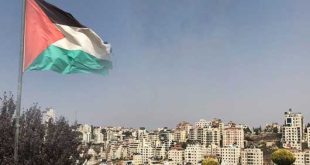A Russian missile strike on a city in central Ukraine on Thursday killed at least 23 people, including three children. Two weeks earlier, missiles crashed into buildings near Odesa, killing 21. And for weeks in the Kyiv suburb of Bucha, civilians bore the brunt of Russia’s assault — killed on their bicycles or while walking down the street, or executed with their hands bound.
Indiscriminate Russian attacks on civilian areas have become a hallmark of its invasion, and this week, an international conference in The Hague sought to coordinate an approach to the overwhelming allegations of war crimes in Ukraine.
But investigators face a formidable challenge, with as many as 20,000 war crimes investigations, multiple countries and international agencies at work, and a high burden of proof to reach a conviction. Complicating matters further, investigations are working while the war is still raging. The Kremlin has denied allegations against its forces, and Russia’s Defense Ministry has called graphic evidence of atrocities “fake.”
Prosecutors are keen to prevent a situation in which national and international prosecutors trip over one another in their search for evidence and witnesses. On Thursday, Karim Khan, the prosecutor of the International Criminal Court, stressed the need to coordinate investigations and avoid a “stampede” of many parties “running to the crime scenes.”
At The Hague this week, representatives from 45 nations, including the United States and European Union countries, heard testimony about atrocities and pledged about $20 million to assist the I.C.C., Ukraine’s prosecutor general and efforts by the United Nations.
Experts say the International Criminal Court, established in 1998 to handle cases of mass atrocities, could be an important avenue for accountability for Russia, though there are many obstacles to that goal. Neither Russia nor Ukraine is among the court’s 123 member nations, but Ukraine has granted the court jurisdiction over crimes committed on its territory.
The Dutch foreign minister, Wopke Hoekstra, said at a news conference on Thursday that the Netherlands was considering setting up an ad hoc international Ukraine war crimes tribunal.
President Volodymyr Zelensky of Ukraine addressed the conference by video even as rescuers were digging through rubble from Thursday’s missile strike on Vinnytsia, a city far from the fighting on the eastern front. “This is the act of Russian terror,” he said.
On Wednesday, the U.S. Secretary of State, Antony J. Blinken, said Russian authorities have “deported” between 900,000 and 1.6 million Ukrainian citizens, including 260,000 children, from their homes into Russian territory, often to isolated regions in the far east. The unlawful transfer of protected persons, he said, was a breach of a Geneva Convention and a war crime.
Russia has acknowledged that 1.5 million Ukrainians are now in Russia, but has asserted that they were evacuated for their own safety.
The history of war crimes cases suggests it would be hard for prosecutors to bring cases over Russia’s war in Ukraine.
Three of the most prominent prosecutions — against Slobodan Milosevic, Charles Taylor and Saddam Hussein — were brought against leaders who were out of power; no sitting president has ever been handed over to an international court.
President Vladimir V. Putin of Russia has significant support at home and has developed strong ties with the leaders of other large nations, including those of China, Turkey and Iran.
Proving war crimes, and especially proving who ordered a given action, is also very difficult. In the case of Mr. Putin, prosecutors would have to demonstrate that he issued specific orders that led to specific atrocities, that he knew about the crimes or that he did nothing to prevent them.
Prosecutors would also have to show that Russian commanders had intentionally targeted civilian structures, or struck them during attacks that failed to discriminate between civilian and military targets. Acquiring such evidence or testimony may be impossible in the near future, at least as long as the fighting is raging.
Marlise Simons contributed reporting from Paris.
 Top Naija News: Nigerian News, Breaking News Nigeria and World News Top Naija News is a daily news publication in Nigeria, delivering the latest breaking news in Nigeria and around the world.
Top Naija News: Nigerian News, Breaking News Nigeria and World News Top Naija News is a daily news publication in Nigeria, delivering the latest breaking news in Nigeria and around the world.



